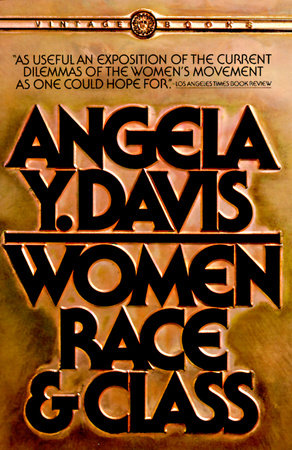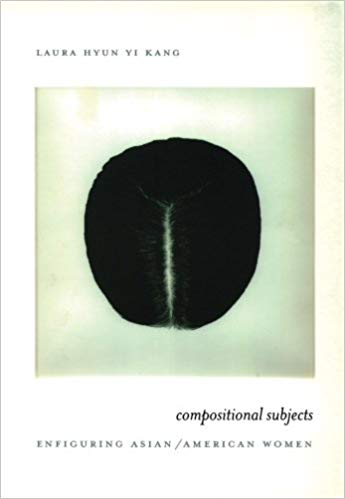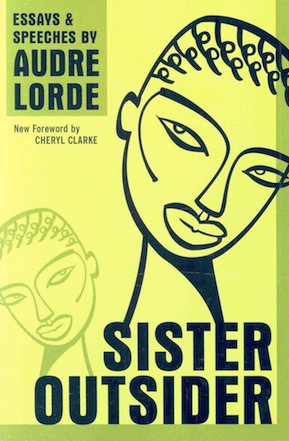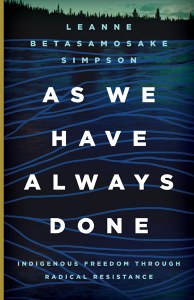
Sara Ahmed (2017) Living a Feminist Life
Building on legacies of feminist of color scholarship, Ahmed shows how feminist theory is generated from everyday life and the ordinary experiences of being a feminist at home and at work. She offers personal meditations on how feminists learn about worlds from their efforts to transform them.

Grace Lee Boggs (2011) The Next American Revolution: Sustainable Activism for the Twenty-First Century
A world dominated by America and driven by cheap oil, easy credit, and conspicuous consumption is unraveling before our eyes. In this powerful, deeply humanistic book, Boggs shrewdly assesses the current crisis—political, economical, and environmental—and shows how to create the radical social change we need to confront new realities.

Leslie Bow (2001) Betrayal and Other Acts of Subversion: Feminism, Sexual Politics, Asian American Women’s Literature
An exploration of issues of race, gender and sexuality within Asian American literature, with an emphasis on how these ideas are treated in writings authored by Asian American women.

Patricia Hill Collins (2000) Black Feminist Thought: Knowledge, Consciousness and the Politics of Empowerment
Collins provides an interpretive framework for the work of such prominent Black feminist thinkers as Angela Davis, bell hooks, Alice Walker, and Audre Lorde. Drawing from fiction, poetry, music and oral history, the result is a superbly crafted and revolutionary book that provided the first synthetic overview of Black feminist thought and its canon.

Angela Davis (2016) Freedom Is a Constant Struggle: Ferguson, Palestine, and the Foundations of a Movement
Reflecting on the importance of black feminism, intersectionality, and prison abolitionism for today's struggles, Davis discusses the legacies of previous liberation struggles, such as the Black Freedom Movement to the South African anti-Apartheid movement. She highlights connections between struggles, challenging us to imagine and build the movement for human liberation.

Angela Davis (1981) Women, Race, and Class
A powerful study of the women's liberation movement in the United States, from abolitionist days to the present, that demonstrates how it has always been hampered by the racist and classist biases of its leaders.

Deepa Iyer (2015) We Too Sing America: South Asian, Arab, Muslim, and Sikh Immigrants Shape Our Multiracial Future
Examining the role of the state in perpetuating ongoing racism against South Asian, Arab, Muslim, and Sikh people, Iyer catalogs recent racial flashpoints, from the 2012 massacre at the Sikh gurdwara in Oak Creek, Wisconsin, to the violent opposition to the Islamic Center of Murfreesboro, Tennessee, and to the Park 51 Community Center in Lower Manhattan.

Laura Hyun Yi Kang (2002) Compositional Subjects: Enfiguring Asian/American Women
Focusing her critiques on interdisciplinary scholarship, Kang tracks the emergence of “Asian American women” as a distinct social identity over the past three decades by looking at different discourses, political and economic conditions, and institutional formations.

Audre Lorde (1984) Sister Outsider
In this charged collection of fifteen essays and speeches, Lorde takes on sexism, racism, ageism, homophobia, and class, and propounds social difference as a vehicle for action and change. Her prose is incisive, unflinching, and lyrical, reflecting struggle but ultimately offering messages of hope.

Mari Matsuda (1996) Where Is Your Body?: And Other Essays on Race, Gender, and the Law
Pioneering legal scholar Matsuda offers a strikingly insightful look at how our collective experiences of race, class, and gender inform our understanding of law and shape our vision of a more just society.

Chandra Talpade Mohanty (2003) Feminism without Borders: Decolonizing Theory, Practicing Solidarity
A collection of Mohanty’s essays examines the politics of difference and solidarity, decolonizing and democratizing feminist practice, the crossing of borders, and the relation of feminist knowledge and scholarship to organizing and social movements.

Julia Serano (2007) Whipping Girl: A Transsexual Woman on Sexism and the Scapegoating of Femininity
This essential book analyzes and speaks from personal experience about how transphobia and transmisogyny function. The language that trans folk and activists use has evolved in the past few years, so some of the language used in this book is no longer used today. Nonetheless, this is a brilliant book that exposes dangerous cultural beliefs about gender, femininity, and bodies.

Leanne Betasamosake Simpson (2017) As We Have Always Done: Indigenous Freedom through Radical Resistance
Locating Indigenous political resurgence as a practice rooted in uniquely Indigenous theorizing, writing, organizing, and thinking, Simpson calls for place-based Indigenous alternatives to the destructive logics of the settler colonial state. “

Keeanga-Yamahtta Taylor (2016) From #BlackLivesMatter to Black Liberation
Taylor examines historical and contemporary racial inequalities such as mass incarceration and Black unemployment to argue that this new struggle against police violence holds the potential to reignite a broader push for Black liberation.














